I've got a class with a static ConcurrentQueue. One class receives messages and puts them on the queue, whilst a different thread on this class reads them from that queue and processes them one at a time. That method is aborted with a cancellationtoken.
The method that empties the queue looks like this:
public async Task HandleEventsFromQueueAsync(CancellationToken ct, int pollDelay = 25)
{
while (true)
{
if (ct.IsCancellationRequested)
{
return;
}
if(messageQueue.TryDequeue(out ConsumeContext newMessage))
{
handler.Handle(newMessage);
}
try
{
await Task.Delay(pollDelay, ct).ConfigureAwait(true);
}
catch (TaskCanceledException)
{
return;
}
}
}
My testing methods look like this:
CancellationToken ct = source.Token;
Thread thread = new Thread(async () => await sut.HandleEventsFromQueueAsync(ct));
thread.Start();
EventListener.messageQueue.Enqueue(message1);
EventListener.messageQueue.Enqueue(message2);
await Task.Delay(1000);
source.Cancel(false);
mockedHandler.Verify(x => x.Handle(It.IsAny<ConsumeContext>()), Times.Exactly(2));
So I start my dequeueing method in its own thread, with a fresh cancellation token. Then I enqueue a couple of messages, give the process a second to handle them, and then use source.Cancel(false) to put an end to the thread and make the method return. Then I check that the handler was called the right number of times. Of course I'm testing this in a couple variations, with different message types and different times when I abort the dequeueing method.
The issue is that when I run any of my tests individually, they all succeed. But when I try to run them as a group, Visual Studio does not run every test. There's no error message, and the tests it does run succeed fine, but the run just stops after the second test.
I do not have an idea why this happens. My tests are all identical in structure. I'm aborting the dequeueing thread properly every time.
What could compel Visual Studio to stop a test run, without throwing any kind of error?
